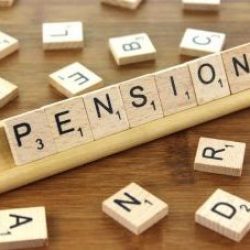November 2018 was a landmark in the structure of state pensions. After introducing the idea of “state pension age equalisation” for both genders, men and women finally share the same state pension age of 65 years old.
Future state pension age rises will be implemented for both genders simultaneously; an important step towards gender equality.
However, the above action was met with protests at the end of last year due to the remaining gender pension gap. Much of this is due to loopholes and technicalities in the work place system that have penalised the types of employment more likely to be taken by women.
Some key differences in male and female pensions are listed below:
- The typical woman receives £126.72 a week from their government pension, whereas the average man gets £153.97. This difference could potentially take as long as 20 years to close if left to happen organically.
- With private pensions, women typically retire with £59,000 as opposed to £143,000 for a man. (AJ Bell)
- Women’s typical total retirement income is 39.5% (£7,000) lower than men’s. (Prospect)
- 59% of working-age women have no private pension. (Department of Work and Pensions)
- The auto-enrolment scheme rolled out in 2012 will benefit men disproportionately – eligibility rules mean only one third of the 9 million new savers will be women.
Former pensions minister, Sir Steve Webb, observed that “pensions have a knack of replicating inequalities during people’s working lives.”
The truth of this paints quite a disappointing picture for the pursuit of gender equality. Under auto-enrolment laws, employers must offer an occupational scheme to staff aged 22-65 who earn at least £10,000 a year. Similarly, to receive a full state pension requires 35 years of National Insurance contributions, but these require you to be earning £116 a week from a single job.
The unintentional side effect of these rules is that people who work part-time, or even have multiple part-time jobs, are more at risk of having less money in their retirement pot. These workers skew heavily towards the female demographic.
Baroness Altmann, a former pensions minister herself, said “We should have equality by now – but the pensions system means we don’t.” It is important, therefore, to bring awareness to the current inequalities for the appropriate conversations to take place, and for any improvements to be made.
For help with any of your accounting or business advisory needs please contact Stack & Jones Accountants on 01869 277973 for a free 1-hour consultation.
Sources: Sunday Times, Prospect
Image source: thebluediamondgallery.com






